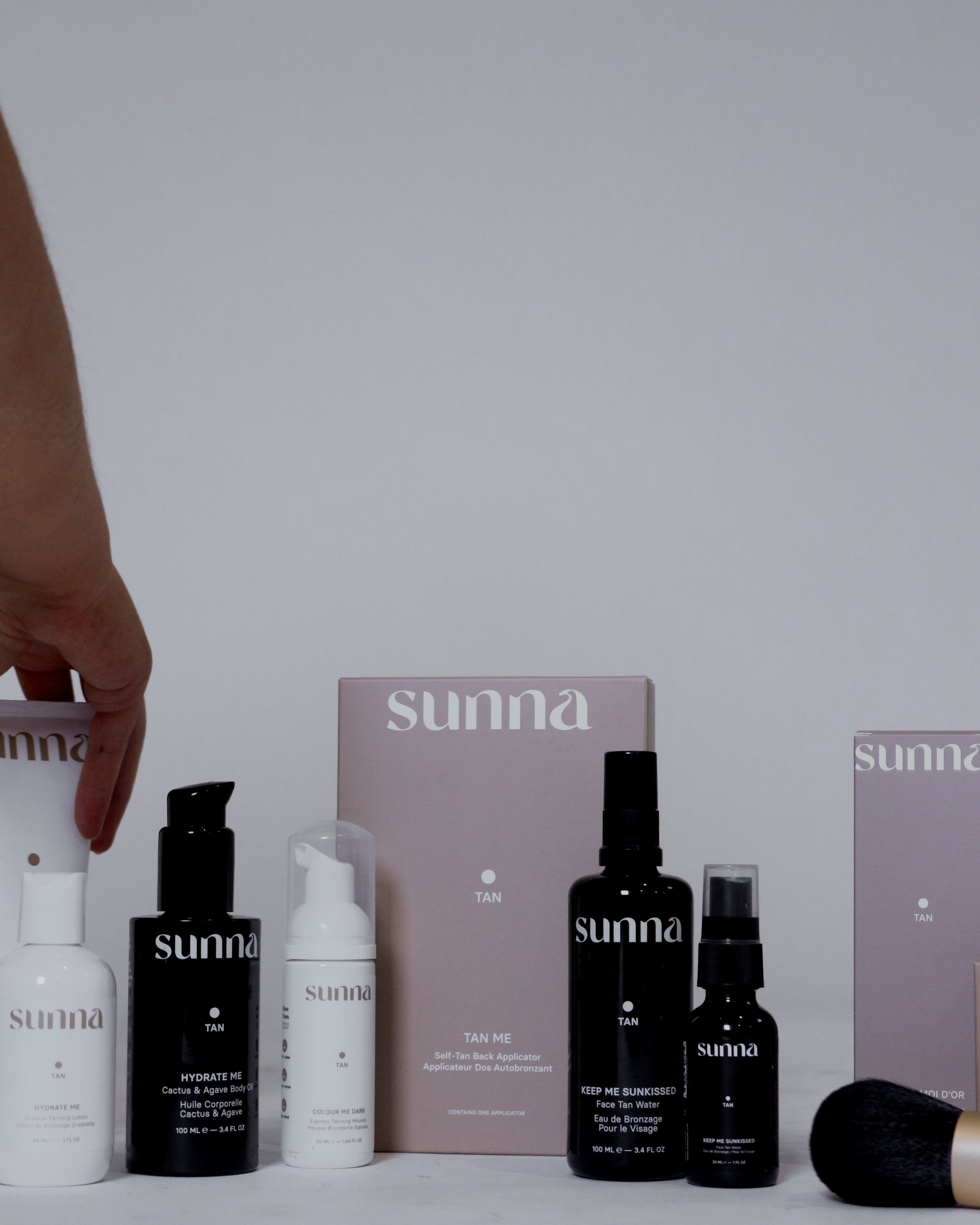
What Everyone’s Asking
-
What is a spray tan and how does it work?
A spray tan is a method of applying a fine mist of tanning solution to your skin, giving you a sun-kissed glow without UV exposure. The active ingredient, DHA (dihydroxyacetone), reacts with the amino acids in the skin's surface to produce a tan.
-
How long does a spray tan last?
A spray tan typically lasts 5-10 days, depending on your skin type, aftercare, and lifestyle. Regular moisturizing can help extend the life of your tan.
-
How should I prepare my skin before a spray tan?
Exfoliate your skin thoroughly at least 6 hours (ideally 12-24 hours) before your appointment, avoid using lotions or oils on the day of the tan, and wear loose, dark clothing to your session.
-
What should I wear during a spray tan session?
Wear whatever makes you comfortable. Many people wear old underwear or a swimsuit, while others prefer to go nude to avoid tan lines.
-
How long should I wait before showering after a spray tan?
Follow specific guidelines provided by your technician for the best results. Wait 2-5 hours after a rapid tan and 12 hours after a regular tan.
-
Will a spray tan protect me from sunburn?
No, a spray tan does not provide any protection from UV rays. You should still apply sunscreen when spending time outdoors.
-
Can I swim or exercise after getting a spray tan?
It's best to avoid swimming or exercising for at least 24 hours after your spray tan. Chlorine and sweat can cause the tan to fade more quickly.
-
How can I make my spray tan last longer?
Keep your skin moisturized, avoid exfoliating, and use gentle, sulfate-free products. Pat your skin dry after showering and avoid hot showers.
-
Is a spray tan safe for my skin?
Yes, spray tans are generally safe. The tanning solution uses DHA, which is FDA-approved for external application. However, if you have sensitive skin, you may want to do a patch test first.
-
What should I do if my spray tan looks uneven or streaky?
If your tan appears uneven, gently exfoliate the affected areas and moisturize regularly. For major issues, contact your technician for advice or a touch-up.
-
How often can I get a spray tan?
You can get a spray tan approximately every 10 days. It’s best to allow your previous tan to fade completely before getting a new one.
-
Can I get a spray tan if I’m pregnant?
Many pregnant women choose to get spray tans. However, consult with your doctor first, and ensure the salon uses products safe for pregnancy.
-
What should I do if I have sensitive skin?
If you have sensitive skin, inform your technician. They may use a gentler solution or recommend a patch test to ensure you don’t have an adverse reaction.
-
Will a spray tan stain my clothes or sheets?
Some initial bronzer might transfer to clothes or sheets, but it usually washes out. Wearing loose, dark clothing after your session can minimize staining.
-
How do I remove a spray tan if I’m not happy with it?
To remove a spray tan, exfoliate your skin with a gentle scrub or use a tan remover product. Moisturize after to keep your skin healthy.
-
Are there any products I should avoid after getting a spray tan?
Avoid products with alcohol, sulfates, and exfoliants, as they can cause your tan to fade faster. Opt for gentle, hydrating products instead.
-
Can I shave or wax after getting a spray tan?
Shaving or waxing can remove the top layer of your skin and your tan. If you need to shave, do it gently with a moisturizing shave gel and a sharp razor.
-
Will a spray tan affect my tattoos?
A spray tan will not harm your tattoos, but it might make them appear slightly darker. The tan will fade evenly with your skin.
-
Do you offer different shades or levels of darkness?
Yes, most salons offer a range of shades to match your desired level of tan. Discuss your preferences with your technician to get the best match.
-
What’s the difference between a spray tan and self-tanning products?
A spray tan is professionally applied using a spray gun, ensuring an even application. Self-tanning products are applied at home and can be more prone to streaks and unevenness.
